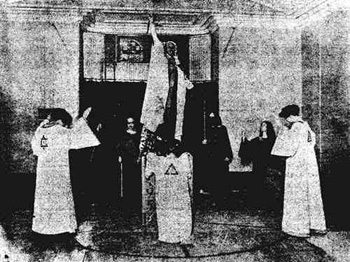
“The joy of life consists in the exercise of one’s energies, continual growth, constant change, the enjoyment of every new experience. To stop means simply to die. The eternal mistake of mankind is to set up an attainable ideal.”
On the Origin of Our Evaluations
Frederick Nietszche
We can analyze our body spatially, and then we gain precisely the same image of it as we have of the stellar system, and the distinction between the organic and inorganic is no longer noticeable. Formerly, one explained the motions of the stars as effected produced by entities conscious of a purpose. One no longer needs this explanation, and in regard to bodily motions and changes, too, one has long since abandoned the belief in an explanation by means of a consciousness that determines purposes. By far the greater number of motions have nothing whatever to do with consciousness; nor with sensation. Sensations and thoughts are something extremely insignificant and a rare in relation to the countless number of events that occur every moment.
On the other hand, we perceive that a purposiveness rules over the smallest events that is beyond our understanding: planning, selectivity, co-ordination, reparation, etc. In short, we discover an activity that would have to be ascribed to a far higher a more comprehensive intellect than we know of. We learn to think less highly of all that is conscious; we unlearn responsibility for ourselves, since we as conscious, purposive creatures, are on the smallest part of us. Of the number influences operating at every moment, e.g., air, electricity, we sense almost nothing: there could well be forces that, although we never sense them, continually influence us. Pleasure and pain are very rare and scarce appearances compared with the countless stimuli that a cell or organ exercises upon another cell or organ.
We are in the phase of modesty of consciousness. Ultimately, we understand the conscious ego itself only as a tool in the service of a higher, comprehensive intellect; and then we are able to ask whether all conscious willing, all conscious purposes, all evaluations are not perhaps only means through which something essentially different from what appears in consciousness is to be achieved. We think: it is a question of our pleasure and displeasure–but pleasure and displeasure could be mean through which we have to achieve something that lies outside our consciousness.–It must be shown to what extent everything remains on the surface; how an action and the image of an action differ, how little one knows of what precedes an action; how fantastic are our feelings of “freedom of will,” “cause and effect”; how thoughts and images are, like words, only signs of thoughts; the inexplicability of every action; the superficiality of all praise and blame, how essential fiction and conceits are in which we dwell consciously; how all our words refer to fictions (our affects, too), and how the bond between man and man depends on the transmission and elaboration of these fictions; while fundamentally the real bond (through procreation) goes its unknown way. Does this belief in common fictions really change men? Or is the entire realm of ideas and evaluations itself only an expression of unknown changes? Are there really will, purposes, thoughts, values? Is the whole of conscious life perhaps only a reflected image? And even when evaluation seems to determine the nature of a man, fundamentally something quite different is happening! In short: supposing the purposiveness in the work of nature could be explained without the assumption of an ego that posits purposes: could our positing of purposes, our willing, etc. not perhaps be also only a language of signs for something altogether different, namely something that does not will and is unconscious? Only the faintest reflection of that natural expediency in the organic but not different from it?
Put briefly: perhaps the entire evolution of the spirit is a question of the body; it is the history of the development of a higher body that emerges into our sensibility. the organ is rising to yet higher levels. our lust for knowledge of nature is a means through which the body desires to perfect itself. or rather: hundred of thousands of experiments are made to change the nourishment, the mode of living and dwelling of the body; consciousness and evaluations in the body, all kinds of pleasure and displeasure, are signs of these changes and experiments. In the long run, it is not a question of man at all: he is to be overcome.
- Liber CCCXLIII
- Reflections on the IXth Degree
- The Eleventh Degree
- Liber DCL vel De Fons Aqua Vita
- De Regulae Vitae
- Liber Vox Viva Voce vel Video
- Liber Dux Femina Facti
- Field Theory of Sex
- Man and Women
- Liber LH
- Liber 131 vel Tridens
- Liber Laiad vel In Occultus
- Liber Ta Pente vel DCCXLI
- Liber Immortalitas vel Luciform
- The Ophidian Current
- Sexual Polarity in Magick
- Selected Studies in Human Sexuality
- Qabalistic Magnetism
- The Science of Religion
- Scientific Proof of Levi’s Aethyr
- Liber DN
- Liber Siloam
- The Formula of ON
- The Supreme Ritual
- Liber Congregus Restituo
- Liber Eugenia
- The Holy Mantra
- Liber Magicum Puerum
- On the Eucharist
- The Nightside Formula
